At STH, we have been reviewing 4-socket servers with every generation since the Xeon E7 V3 series. The market is still dominated by 2-socket offerings and from what we have heard, in terms of volumes, single socket is also a bigger segment. Still, for those who need to scale-up nodes, 4-socket servers are important. In this review, we are going to take a look at the Gigabyte R292-4S1 which is a 2U server that has four 3rd Generation Intel Xeon Scalable “Cooper Lake” processors and supports up to 18TB of memory.
Gigabyte R292-4S1 Review Video Version
This is an in-depth piece, so we have a video version for those who prefer to listen here:
As always, we suggest opening this in a YouTube tab/ app for a better viewing experience.
We normally do not go in-depth into the CPUs/ platform basics, but since this is a platform in many ways defined by its processors, we wanted to go into a brief overview.
3rd Generation Intel Xeon Scalable “Cooper Lake” Refresher
In late Q2 2020, we saw the launch of the 3rd Generation Intel Xeon Scalable “Cooper Lake” line. The public launch of the new processor series brought a major update to the world of 4-socket and 8-socket platforms in the market. We saw higher clock speeds, TDPs, DDR4-3200 support, Optane PMem 200 support, brain float16 support, but importantly we saw a new UPI link infrastructure.
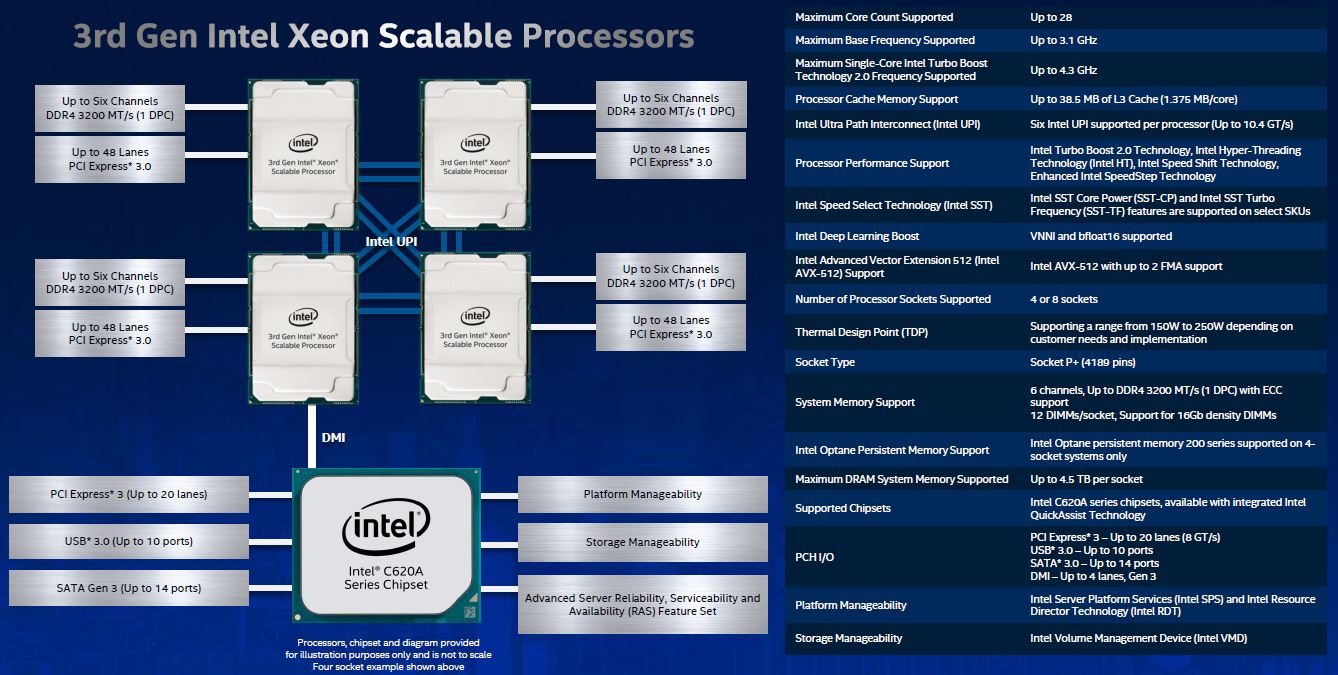
Instead of 3x UPI links on chips such as the Xeon Platinum 8280, the Cooper Lake “H” parts have 6x UPI links per chip. This means that in a 4-socket configuration where each chip is connected to three peers, we get double the bandwidth, or bandwidth equivalent to the Big 2nd Gen Intel Xeon Scalable Refresh dual-socket topologies, just in 4-socket. One of the major challenges in the previous generations of Intel Xeon 4-sockets has been a steep drop-off in socket-to-socket bandwidth. Cooper Lake changes this.
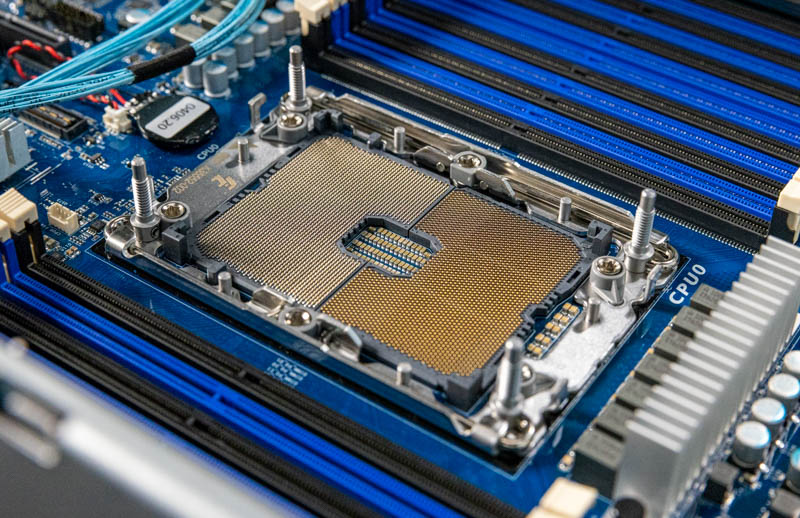
In terms of SKUs, Intel added a number of new SKUs and did a Q3 2020 update as well. Here is the basic lineup for Cooper Lake including the additional SKUs:

Originally we were supposed to get Cooper Lake in this 4-socket scale-out configuration as well as dual-socket Whitley as an advance processor before the 10nm Ice Lake. About a quarter before launch, we found that Intel Cooper Lake was rationalized and the Whitley version was canceled, leaving the scale-up Cedar Island version as the only launch product. Both Cedar Island and Whitley were to share LGA4189, with keying differences denoting whether we had Socket P4 or P5. We covered this in our Installing a 3rd Generation Intel Xeon Scalable LGA4189 CPU and Cooler piece where we used this Gigabyte R292-4S1 system to showcase the new socket and cooler design.
For those wondering, one of the key reasons Intel has continued down the Cooper Lake path is that it has a major customer. We saw in 2020 that Facebook introduced Cooper Lake Intel Xeon Platforms for its web front end as well as larger platforms. From what we understand, Facebook wanted Cooper Lake (which means many of our readers have “used” these CPUs) and thus, the project continued.
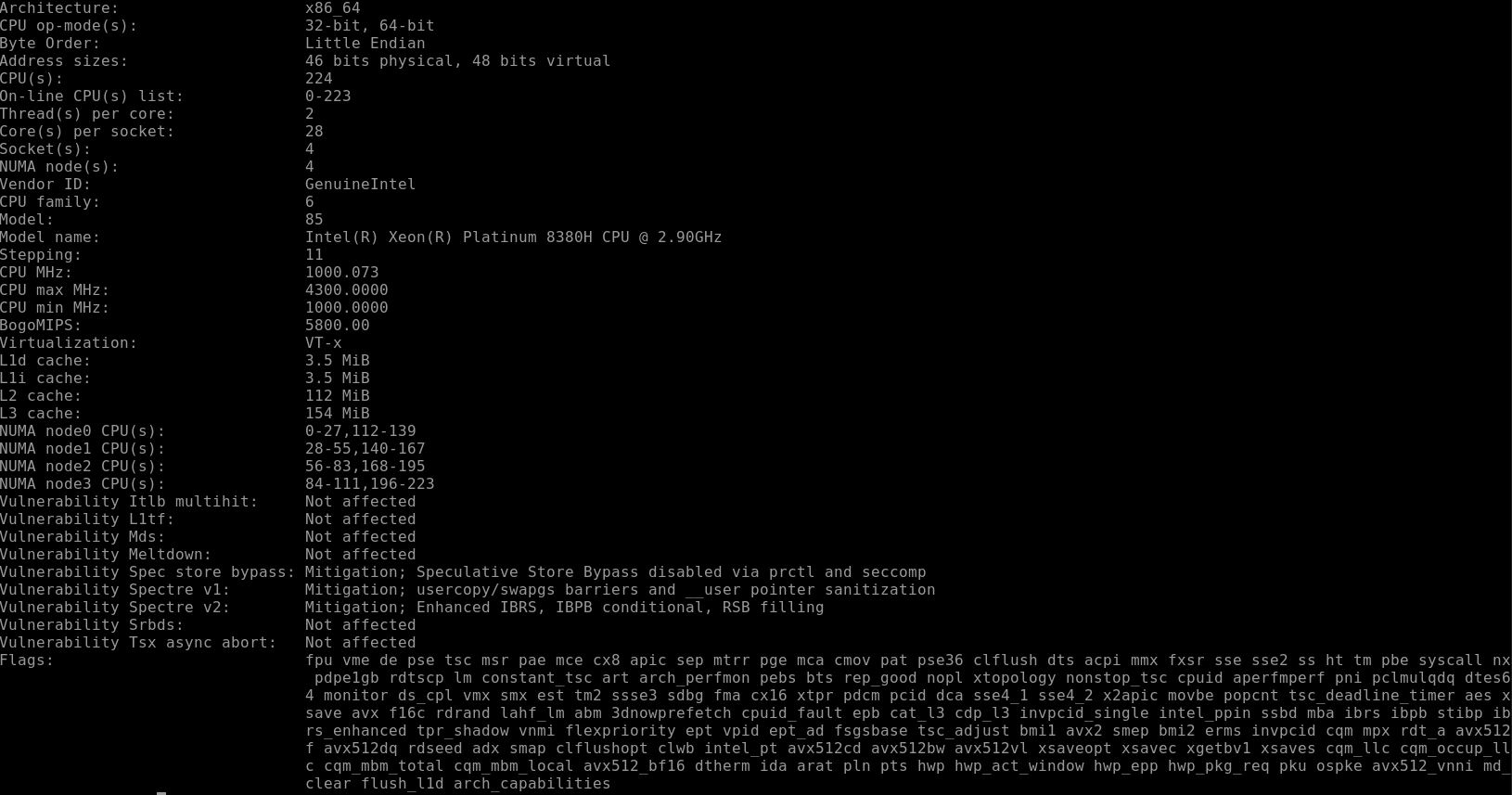
One of the biggest instruction changes is bfloat16 support which Facebook uses to train its AI models using empty CPU cycles. One will need to click to enlarge that picture, but in the middle of the second to last line, there is avx512_bf16 support. This is a big feature to effectively double FP32 performance on CPUs while having very little fidelity loss for AI.
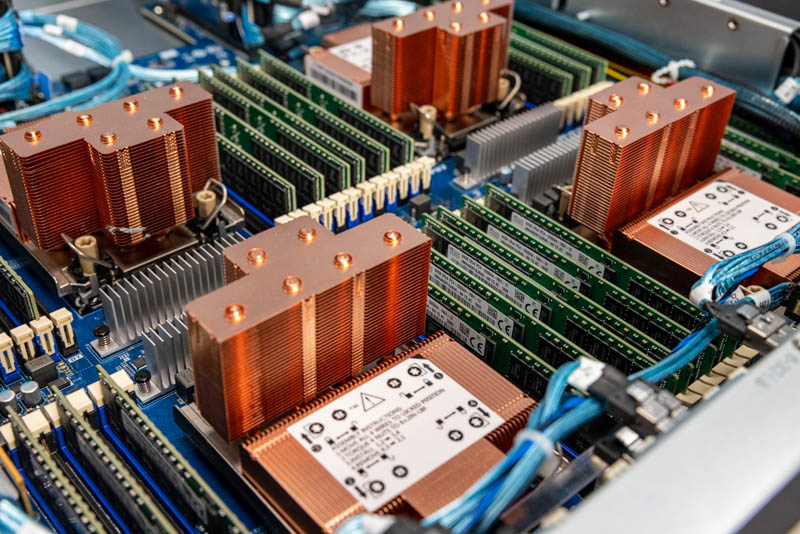
Overall, Cooper Lake will continue as Intel’s scale-up platform for applications such as SAP HANA while Ice Lake will be the mainstream 1P/ 2P platform. With that context, in today’s review, we are going to take a look at the Gigabyte R292-4S1, a 4-socket server.
Next, onto the hardware.

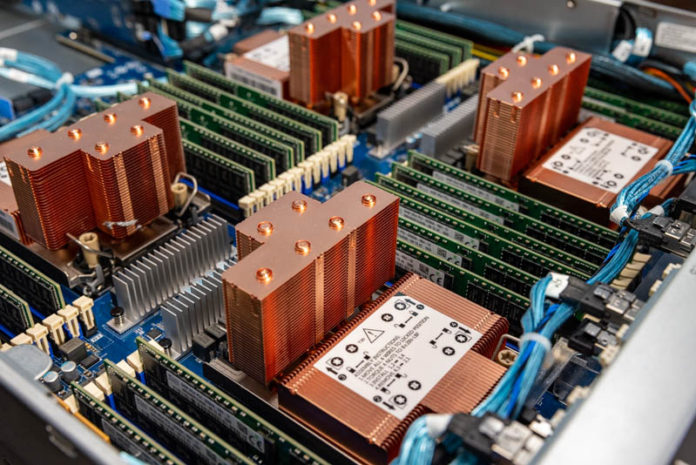
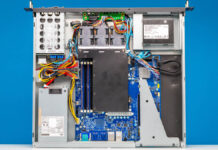

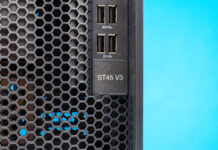
This is exactly why we read STH. Ya’ll on a roll with these. It’s like “hey there’s this thing, here’s everything you need to know about it” BOOM.
I wish you reviewed every server out there so the server buying experience was more transparent. I know that’s impractical, but this is so much better than the Dell marketing material on its servers and the junk they pass off as collateral. Oh and I don’t think Dell even has these just the R940/R840 so this is technically higher-end than Dell’s highest-end 4-way
Best review, also only review. Nice STH on not squandering and doing good write up.
I’m learning so much here
I didn’t even know what cooper was until I saw the heatsink video with this system